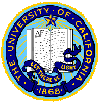 |
Scott Jordan | |
|
|
Economics 11 / ICS 11
The Internet and Public Policy
Spring quarter 2019, TuTh 3:30-4:50pm
The course will focus on 3 case studies concerning the federal government’s role in regulating and encouraging the Internet that illustrate how technology, economics, politics and law are combined to form public policy --
- Copyright Infringement– Should law make it more difficult for peer-to-peer file sharing users to find copyrighted music and video files? Are these measures effective?
- Privacy – What parts of your Internet traffic should your ISP or cell phone provider be allowed to collect, and how should it be be able to use it? What type of consent should be required?
- Net Neutrality & Throttling – Should your ISP or cell phone provider be allowed to throttle some types of Internet traffic, e.g. video or music? What if you receive a discount for a plan that throttles traffic in this manner?
In order to address these case studies, you’ll also learn some basics about the Internet, economics, and law --
- Learn how the Internet works – How does your computer find where a webserver is located? What do those IP numbers mean? How do packets find their way? How does the Internet control how fast you can send? What was Senator Ted Stevens talking about when he called the Internet a “series of tubes”?
- Learn basic microeconomics – How do consumers decide how much to buy? How do companies decide how much to sell? How are prices chosen? How can monopolies manipulate prices to maximize profit? Why do you have more choices for wireless providers than for wired phone providers?
- Learn how telephone, wireless, cable tv, and the Internet are regulated – Are there limits to what your telephone and cable companies can charge? Why can’t you purchase only the cable channels you want? Is your Internet provider allowed to look inside all your packets to see what you are doing on the Internet?
Course overlap: The economics material overlaps with Econ 20A, 100A, and 100B. The Internet architecture material overlaps with CS 132 and EECS 148. Students who have taken any of these courses may still take Econ 11 / ICS 11, since they will find the remaining material to be new and challenging. (Note: This means that this course will be challenging for Econ and BusEcon majors, regardless of what counselors may have told you ...)
Degree requirement credit: You can choose to count the course toward General Education requirements under either category II (Science and Technology) or category III (Social and Behavioral Sciences) but not both. This course may or may not count toward major requirements; please consult your student affairs office for details.